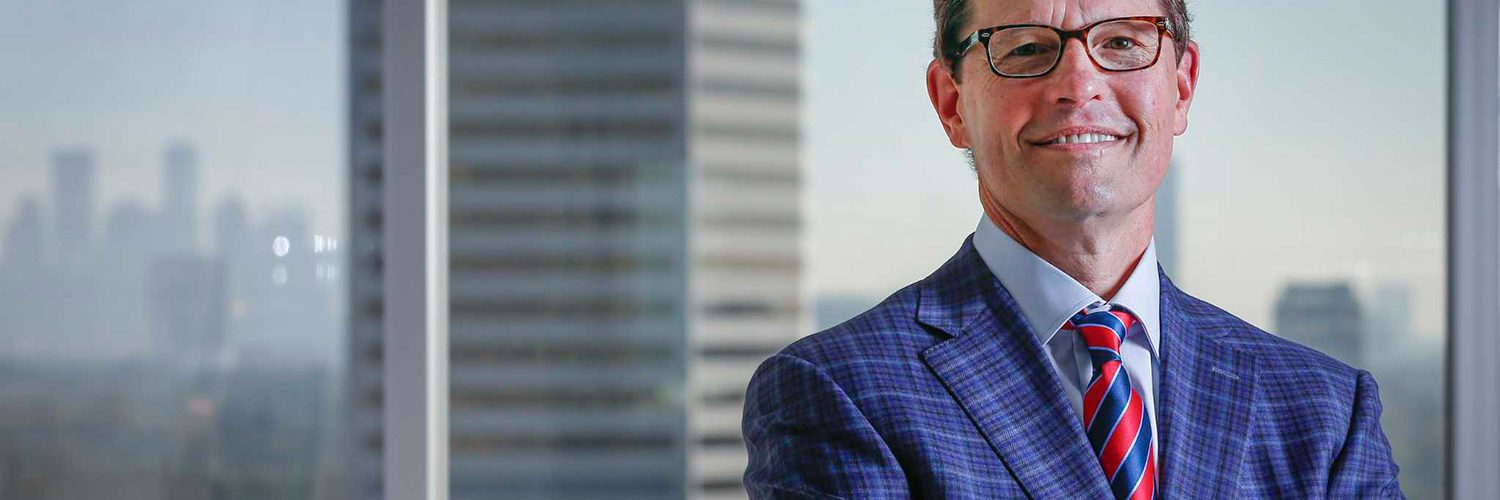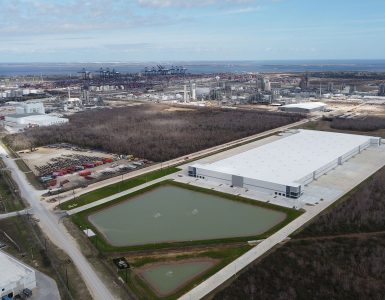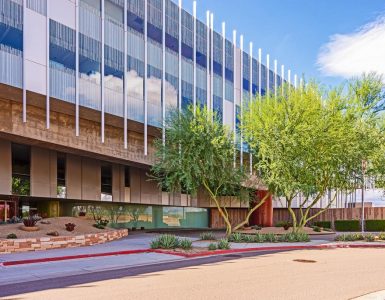Transwestern CEO Larry Heard Talks COVID, the Amazon Effect and Suburban Life
Houston Chronicle, Nov. 30, 2020
By Nancy Sarnoff
The pandemic-induced economic crisis has thrown the commercial real estate market into turmoil as restaurants close, retailers go out of business and office tenants rethink the amount of space they need as more people work from home.
Landlords in the hardest hit sectors will face significant challenges in the coming months and investors willing to bet on the industry’s recovery will have opportunities, said Larry Heard, CEO of Houston-based commercial real estate firm Transwestern, a family of companies that provide operating, investment management and development services.
Heard, a native Houstonian who has worked in commercial real estate for nearly four decades, spoke to Texas Inc. about what’s driving the industry and what sectors are best positioned to participate in the recovery.
Q: Are your employees back in the office?
A: We have 2,100 team members nationally. Houston is one of our largest offices. We determined that it was important in our business to get back to the office for several reasons in a measured, thoughtful way: social distancing, wearing masks, washing our hands regularly and often.
It’s interesting, we’re seeing across the country the markets that are most reliant on mass transit have the lowest census rates in office buildings. Markets like New York, Chicago, San Francisco are only being occupied at say 10 to 15 percent right now of their capacity. We’re finding that cities that are not as reliant on mass transit, primarily in the south, like Dallas, Houston, Atlanta, Phoenix, have much higher occupancies, in the 30s and 40 percent.
Q: Do you think all of your employees will return to the office or will some job functions remain remote?
A: It’s going be a combination. There are two dynamics in play. One is to be less dense in the office itself. People will begin to spread out more. And the second trend is certain components working remotely. Those two things are going to balance out at some point. It’ll be interesting to see what the net effect is but ultimately, I believe that the office building environment has a bright future. I think the culture of an organization is really fueled by people being together.
That said, I do believe there are some functions that can take place as easily remotely as in the office. My sense is we’ll have more flexible work schedules, and some will be able to work remotely.
Q: What do you see as those functions that can be done remotely?
A: Anything that is data analytics. Perhaps some of the accounting of financial functions can be done remotely as well as they can in person. Even those functions will benefit from being with coworkers. I don’t think it’s exclusively a remote solution.
Q: How do you envision migration patterns changing if more people are able to work remotely?
A: I still believe there’s a desire for people to enjoy the benefits of urban living, but I think that urban living is going to change and the densification is going to have to be modified to truly enjoy it the way we did. I think short term, the suburban markets will benefit. Having a little bit more elbow room will be something we’ll see. We’ve been seeing some of it in the boom in second homes in places in and around major cities.
Q: What sectors are most in demand?
A: There are certain asset classes like the industrial and logistics space, which is experiencing this rapid rise fueled by e-commerce, and multifamily space, particularly suburban product that appeals to the majority of our workforce. Those two products are very much in demand, and, in fact, capitalization rates are the same or even lower in a few cases than pre-pandemic, which is pretty remarkable. It shows how attractive those investments are to the institutional investment community.
If industrial, logistics and multifamily are in the top band of the most attractive, I’d say office and health care components are in the middle band. In the office arena, if you have credit tenants committed with long-term leases, there’s plenty of capital for that kind of product. It would be more of the multi-tenant, suburban office markets that we’re in a little bit of a wait-and-see mode because we really don’t have visibility into what rent rates are going to end up doing coming out of the pandemic. We just need more time to evaluate that.
Q: Who’s leasing space today?
A: It’s primarily e-commerce driven. The Amazon effect, if you will, and large firms like Walmart and others are doing very well. We’re seeing strong leasing in Houston, in Texas and nationally in the industrial and logistics space. That demand continues to be robust despite the pandemic.
Q: What’s your outlook on downtown Houston continuing to be a viable office market?
A: Downtown probably has the lowest census count in the city today. But downtown’s going to come back. Houston’s going to come back. The downtown market is still an attractive market long-term.
Q: So it may just take longer for that market to come back?
A: I think it’ll trail some of the other markets as far as people feeling safe about coming back to the office, but I think it will happen. Really the discussion could be as much our anchor oil and gas industry as anything.
Q: Speaking of which, energy was hurting before. Now it’s worse. How do you see the energy industry evolving?
A: Don’t discount the ability of the fossil fuel industry to significantly reduce its carbon footprint. Global oil and gas companies are technology firms at their core today and they are investing as much in technology to reduce their carbon footprint as renewable firms are investing in their efforts to scale.
The next few years will be very difficult for the industry as it continues to refine and reshape itself. But if you look at the technology in the oil and gas business particularly around materials, science and carbon capture, that’s going to fuel a lot of the innovation that’s going take place in Houston over the next two decades.
You’re going to find Houston redefining itself as a more heavily tech-driven economy. A lot of these large companies in the energy space are going to be the drivers of a lot of that innovation.
Q: What does the pandemic and these shifts in office use mean for large corporate campuses?
A: Why did these develop in the first place? It was all around recruiting and retention and creating a culture in an area that’s more expansive. I believe if you look at that today those would still be very attractive features in a more open environment. You control your brand and your culture. People enjoyed working in those kinds of environments.
I believe there’s a lot of economic pressure on the large oil and gas companies to be as efficient as possible, and sometimes that will translate to a corporate campus and some times that will translate to going downtown and leasing space or west Houston and leasing space in some of these new buildings.
Q: What sectors are you most worried about?
A: The retail sector and the hotel sector are that two that have been impacted the most by the pandemic. Retail, keep in mind, is driven by technology and the consumer. It’s almost as simple as that. Because of the Amazon effect, the e-commerce effect, the consumer has remained pretty resilient through this period, but a lot what we think of as retail has moved into that industrial and logistics space. There will be winners and losers in the retail space. That’ll be a challenged environment for a while.
And then hotels have been hammered. Business travel is off dramatically and will remain off for another year probably. So, I still see hotel occupancies remaining very impaired.
Q: A lot of owners won’t be able to hold onto their properties. And the commercial mortgage-backed securities market is challenged. What’s your outlook for foreclosures and distressed properties?
A: We’ve seen less distress currently than we anticipated that we would. A lot of that is driven by the lenders choosing forbearance for their borrowers. It’ll be interesting to see how long that will be in place and which projects and industries begin to recovery. But at some point in 2021 we will see more distressed properties come to the market. There will be opportunities to acquire more distress. There’s clearly a lot of capital available for that. We just haven’t seen it yet and again I attribute that to the forbearance of lenders.
Bisnow, Nov. 1, 2020
Katy Gragg knows how much a good training program can shape the experience of newcomers in commercial real estate. She went through one herself just five years ago…
‘Knowledge Clusters’ Are About to Fuel DFW Life Sciences Growth
Dallas Innovates, Nov. 9, 2020
John Huff, national managing director at Transwestern, explains why DFW is a growing center for entrepreneurial startup firms, academic research, and clinical and technical commercialization opportunities…
Why Houston’s New Innovation District Picked This Coworking Model
CoStar, Nov. 18, 2020
The development team with Rice University unveiled new agreements with Transwestern for property management and Dallas-based Common Desk, making it the official coworking operator inside The Ion, the redevelopment of the former Sears in midtown Houston…
Lenders Bearish on Retail Sector Except for ‘Prime’ Assets, Says Expert Panel
Shopping Center Business, Nov. 20, 2020
Fred Victor, vice president of capital markets and investment sales at Transwestern, pointed out that life insurance companies are still active lending in the retail sector, especially when it comes to grocery-anchored properties…
Site Selection, November 2020
“After reviewing all available options, Heritage Auctions decided to start with a clean slate under one location that still allows for superior worldwide customer service to clients,” said Transwestern Real Estate Services Principal Nora Hogan…
























